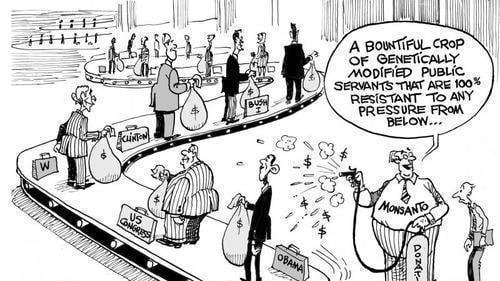Your cart is currently empty!

Regulatory Capture
Since the end of the Cold War, the global geopolitical landscape has dramatically transformed, giving rise to new forms of conflict and influence. One pressing concern that has emerged is the potential regulatory capture of the US government by foreign entities through economic, cyber, political, military, and cultural means. Regulatory capture occurs when regulatory agencies created to act in the public interest instead advance the commercial or political concerns of the groups they are supposed to regulate. This article examines these shifts from 1988 onward, highlighting the areas where foreign influence poses significant risks to US national interests.
Economic Policy and Trade Relations
Globalization and Trade Imbalances
In the 1990s, the US embraced globalization, leading to significant economic integration with other countries. Notable policies like the North American Free Trade Agreement (NAFTA) facilitated trade but also led to substantial job losses in US manufacturing sectors. This shift benefited countries with lower labor costs, particularly China. The US’s support for China’s entry into the World Trade Organization (WTO) in 2001 further deepened economic ties. While these policies aimed to promote global economic growth, they resulted in trade imbalances and increased economic dependencies on China, raising concerns about economic sovereignty. For instance, between 2001 and 2018, the US lost over 3.7 million manufacturing jobs to China, reflecting the profound impact of these policies on the American workforce.
Cyber and Information Warfare
Increased Cyber Threats
The late 1990s and early 2000s saw a significant rise in cyber attacks targeting US infrastructure, government agencies, and private companies. State actors, particularly from China and Russia, have been implicated in these attacks, aiming to steal intellectual property and disrupt critical operations. Notable incidents include the 2015 Office of Personnel Management data breach, attributed to Chinese hackers, which compromised the personal information of over 21 million federal employees. These cyber threats highlight the vulnerabilities in US cyber defenses and the ongoing efforts by foreign entities to undermine US technological and economic leadership.
Disinformation Campaigns
Disinformation campaigns have become a prominent tool for foreign influence, particularly by Russia. Documented efforts during the 2016 and 2020 US presidential elections aimed to sow discord and manipulate public opinion. For example, the Internet Research Agency, a Russian troll farm, created thousands of social media accounts to spread false information and exacerbate social divisions. These campaigns utilize social media and other platforms to spread false information, exacerbate social divisions, and undermine trust in democratic institutions.
Political Influence and Regulatory Capture
Lobbying and Political Donations
Foreign lobbying and political donations in the US have raised concerns about regulatory capture. Entities linked to foreign governments have exerted influence through donations and advocacy, potentially swaying policy decisions in ways that may not align with US national interests. For instance, reports have revealed that Chinese companies have made substantial donations to US political campaigns and think tanks, seeking to influence policy on trade and technology. This foreign influence challenges the integrity of US political processes and decision-making.
Policy Shifts Favoring Foreign Entities
Certain policy shifts have appeared to align more closely with foreign interests. For example, changes in sanctions or regulatory frameworks sometimes seem to benefit foreign powers more than the US. A notable case is the easing of sanctions on Russian companies linked to oligarchs with close ties to the Kremlin, raising questions about the extent of foreign influence on US policy and the potential for regulatory capture.
Military and Strategic Considerations
Middle Eastern Conflicts
US involvement in the Middle East, particularly the wars in Iraq and Afghanistan, has been criticized for strategic overreach. These prolonged military engagements have drained resources and arguably benefited geopolitical rivals by entangling the US in costly conflicts. Between 2001 and 2021, the US spent over $2 trillion on the war in Afghanistan alone, with little to show in terms of strategic gains. Such overreach highlights the need for a reassessment of US military strategies and priorities.
Shifts in Alliance Dynamics
The US’s strategic pivot to Asia, announced during the Obama administration, reflects the growing influence of China. Strengthening alliances in the Asia-Pacific region aims to counterbalance Chinese influence. This includes initiatives like the Trans-Pacific Partnership (TPP) and increased military presence in the region. However, this shift also indicates the complex nature of modern geopolitical struggles and the need for a nuanced approach to maintaining US strategic interests.
Cultural and Social Influence
Media and Academia
Foreign influence in US media and academia is a growing concern. Confucius Institutes, funded by the Chinese government, have been established at various US universities, raising issues about academic freedom and the promotion of Chinese state propaganda. Reports have highlighted instances where these institutes have pressured universities to avoid topics sensitive to the Chinese government, thereby shaping narratives and public perception. Such influence efforts aim to shape narratives and public perception, potentially undermining US cultural and intellectual independence.
Social Movements
Some social movements in the US have received foreign funding aimed at creating division or instability. For example, investigations have revealed that certain environmental and political groups have received support from Russian interests seeking to exploit social and political tensions. These movements, often supported by foreign entities, seek to exploit social and political tensions, further complicating the domestic landscape and challenging US social cohesion.
Considerations
The evidence of significant foreign influence across economic, cyber, political, military, and cultural domains is undeniable. While it is challenging to conclusively state that the US has been entirely regulatorily captured by a foreign entity, the risks and vulnerabilities are real. These influences pose serious threats to US national interests and require robust countermeasures to protect sovereignty and democratic integrity. Continued vigilance and strategic actions are essential to counter these multifaceted threats and ensure the long-term security and prosperity of the United States.
Learn More:
- Cambridge University: Government Rhetoric and the Representation of Public Opinion
- SpringerLink: Presidential Rhetoric and US Foreign Policy
- Cybersecurity and Infrastructure Security Agency: Foreign Influence Operations and Disinformation

Leave a Reply